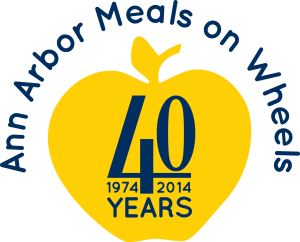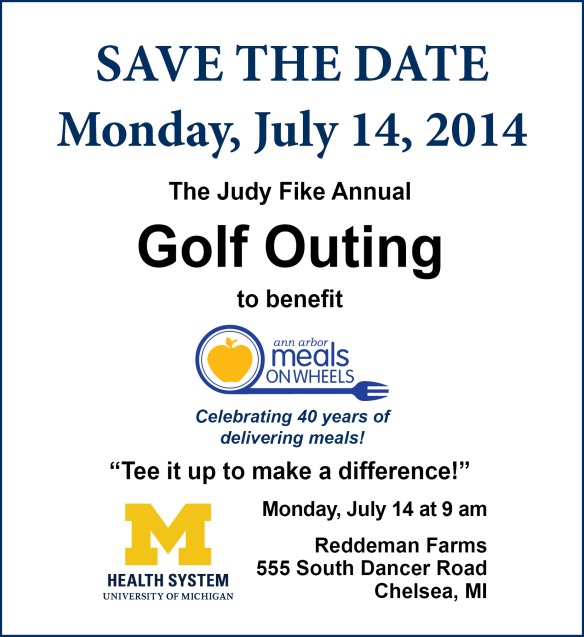“Success is to be measured not so much by the position that one has reached in life as by the obstacles which he has overcome.”
Booker T. Washington
It’s the beginning of a new season. As I reflect on our previous seasons, that combined to create our first year, I am amazed at what we accomplished. FY2013 was one of the most challenging times in my 25 year tenure with UMHS. We came to the table optimistic but determined to do our part to address the financial deficit within the health system; working together to create OUR plan.
Despite the challenges, we accomplished some amazing tasks that support our health system and our community, both internally and externally.
Accommodations Program
– We made 11,574 reservations for patients, families and visitors to UMHS via the Patient and Visitor Hotel Accommodations Program – that’s an average of 965 reservations per month! The onsite Med Inn Hotel averaged 100% occupancy for 12 months. And, we launched our partnership with the Ann Arbor Mennonite Guest Home – a six year project to bring additional lodging to our patients and their families.
Adolescent Health Initiative
– Lauren Ranalli, Director of the Regional Alliance for Healthy Schools (RAHS), was successfully hired as Director of the Adolescent Health Initiative and we received a grant from MDCH to hire a program manager. Physician Adolescent Champions have been identified and with medical director, Maggie Riley, MD (Family Medicine) we are firmly on our way to doing great work. Planning for the first state-wide conference on adolescent health in Michigan is, also, underway for April 2014. The conference will focus on translating knowledge on working with adolescents to practice.
Ann Arbor Meals on Wheels
– We marked 2 million meals served (since the late 1980’s) with a celebration and open house in January 2013 that recognized our staff, volunteers, donors and funders for support for nearly 40 years. Our annual volunteer-driven golf fundraising event, The Judy Fike Golf Outing to benefit Ann Arbor Meals on Wheels, raised over $25,000 this year which will be used to provide meals to area homebound seniors and others.
Comprehensive Gender Services Program
– The Gender Program saw the largest increase in new client enrollment for calendar year 2012 with 108 new clients (a 40% increase our previous high of 43 new patients in 2007) since the program’s inception in 1995. (Notably, that growth shows no sign of slowing, as the program has enrolled 158 new patients to date in 2013.) In addition, the program created two support groups: one for the parents and guardians of gender-variant children, and the second for spouses and partners of transgender adults. The program also increased its ties with the Disorders of Sexual Development clinic and maintains a strong connection to Family Medicine, Plastic Surgery, Urology and Reproductive Endocrinology in providing support for our clients. The first gender variant youth and sibling event will be held at CPS in October in direct response to the increasing needs of this special population. The UMHS-CGSP is the only university-based, multidisciplinary gender program in the United States.
Friends Gift Shops
– Provided over $200,000 in grants to support patients and family programs within the health system (this includes $150,000 in core awards given to support Child & Family Life, Social Work Guest Assistance Program (GAP), Trails Edge Vent Camp (for ventilator dependent children) and the Patient Education Advisory Committee). Some of the other awardees for FY2013 include the East Ann Arbor Surgical Center, Adult Medical Observation Unit, Transplant House, the Brandon NICU, the Depression Center and Canton Radiology.
Housing Bureau for Seniors
– Celebrated 30 years of serving area seniors and their families. The yearly conference, Senior Living Week that provides education and information about aging in place, resources to support housing transitions and contact with experts in the field of housing and aging support celebrated its 15th anniversary. One of the highlights of HBS, our HomeShare Program is the only official program of its kind in the state of Michigan and has proven demonstrably effective in the community as an alternative method for allowing seniors to remain in their home.
Interpreter Services
– Launch of two innovative new classes – Interpreting in Palliative Care and Interpreting in Mental Health, both new classes are the one of the firsts trainings of their kind offered nationally. In addition to these two new courses, we successfully offered professional trainings classes for Bridging the Gap, Medical Terminology and Body Systems and Foundations for Medical Interpreter (formerly Medical Interpreting – Basic Skills ASL). These course offerings make our program a standout for promoting medical interpreting as a profession. The next step on our journey is the accreditation of our training program.
Program for Multicultural Health
– Partnered with the brothers of Kappa Alpha Psi Fraternity, Inc. to present a successful African-American Men’s Health Symposium with significant contributions from Dr. Ken Jamerson, Frederick G L Huetwell Collegiate Professor of Cardiovascular Medicine and Professor of Internal Medicine (former medical director, Program for Multicultural Health), Brian Frey, UM School of Public Health Intern, Community Programs and Services, and Dr. Rohan Jeremiah, Paul D. Cornely Postdoctoral Scholar, UM School of Public Health. This symposium was Phase I of our partnership with Kappa Alpha Psi Fraternity, Inc. The symposium had barely closed before discussions began for Phase II — a Midwest regional symposium in 2014. The symposium also provided an opportunity to create an African-American Male Community Health Advocate group for the community. We are excited to train men how to educate other men on health issues (e.g. Hypertension, Diabetes, and Prostate Cancer) that are disproportionately experienced by African-American men.
– We enjoyed a successful summer teaching over 40 children (between the ages of 5 and 12) about nutrition. The children, summer camp participants at either the Parkridge Community Center in Ypsilanti, MI or Peace Neighborhood Center in Ann Arbor, MI learned about healthy eating, made health snacks, and participated in “taste-testing” vegetables and fruits not normally a part of their diet. (https://www.med.umich.edu/multicultural/)
Regional Alliance for Healthy Schools
– We experienced a period of transition within our program. Jennifer Salerno, the long-term director and visionary for RAHS left to pursue other endeavors. Lauren Ranalli, MPH, was hired to take her place at the helm. Lauren hit the ground running in March; working to successfully manage the challenges created by the merger of two school-districts. Economic challenges for both Ypsilanti Public Schools and Willow Run Community Schools districts drove a merger which had the potential to affect three (3) of our school-based health centers. Following the merger, we efficiently closed the Ypsilanti Middle School health center and moved those services to the Lincoln Middle School. This move expanded services in the school district and provided support for our Lincoln High School school-based health center. We were the award recipient of nearly $400,000 from HRSA to improve the Ypsilanti High School Health Center. The award will allow us to renovate our clinic space to provide more privacy and efficient flow for students visiting the school-based health center.
– Developing the next generation of “leaders and best,” staff and students attended “Advocacy Day” (students, accompanied by RAHS staff, visited Michigan State Legislators to garner support for school-based health centers) in Lansing and participated in Project VOICE on the UM Flint campus.
Volunteer Services
– Reorganized and streamlined volunteer training and orientation sessions successfully. Created a process to efficiently onboard non-student volunteers (retirees, stay-at-home parents, and others). Allowing equal access to community volunteers to support our patients, their families, faculty, and staff. But more importantly, we continue to average close to 2,000 volunteers providing support to our institution.
This is, by no means, an exhaustive list of our many accomplishments during FY13. I would still be writing!! Instead, this is just a sample of the excellent support we provide to the University of Michigan Health System and our patients, their families and friends and the community. We are a valuable resource. We will continue to flourish to provide quality and consistent energy and passion in support of the vision, mission and goals of the health system.
The best is, truly, yet to come!
Warmly,
Alfreda Rooks
“Success in any endeavor does not happen by accident. Rather, it’s the result of deliberate decisions, conscious effort, and immense persistence…all directed at specific goals.”
-Gary Ryan Blair











